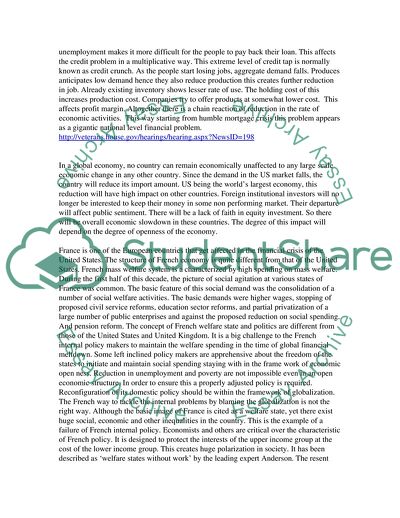Cite this document
(Effects of the US Economic Meltdown on France Case Study, n.d.)
Effects of the US Economic Meltdown on France Case Study. Retrieved from https://studentshare.org/macro-microeconomics/1722290-economics-macroeconomics
Effects of the US Economic Meltdown on France Case Study. Retrieved from https://studentshare.org/macro-microeconomics/1722290-economics-macroeconomics
(Effects of the US Economic Meltdown on France Case Study)
Effects of the US Economic Meltdown on France Case Study. https://studentshare.org/macro-microeconomics/1722290-economics-macroeconomics.
Effects of the US Economic Meltdown on France Case Study. https://studentshare.org/macro-microeconomics/1722290-economics-macroeconomics.
“Effects of the US Economic Meltdown on France Case Study”. https://studentshare.org/macro-microeconomics/1722290-economics-macroeconomics.


